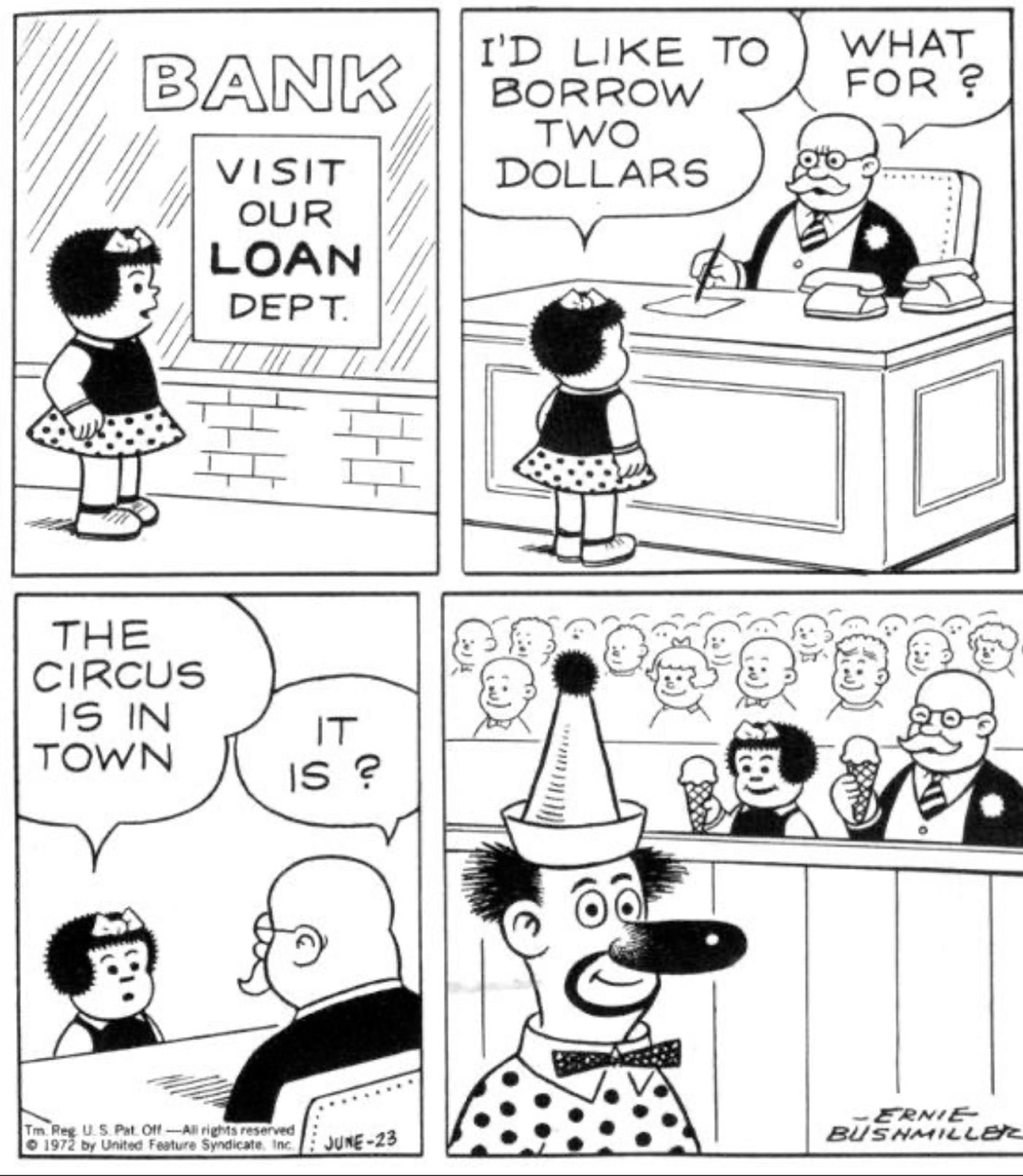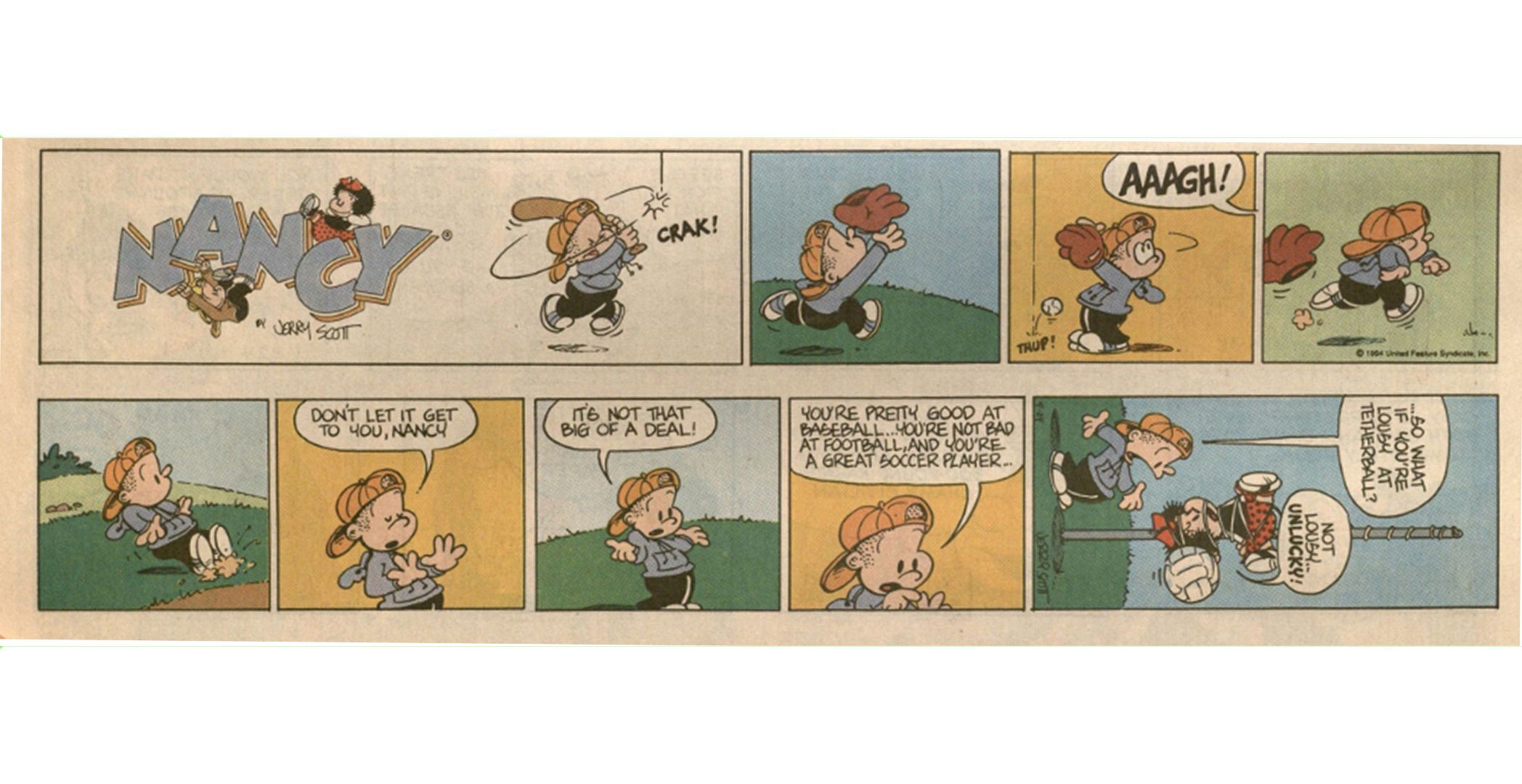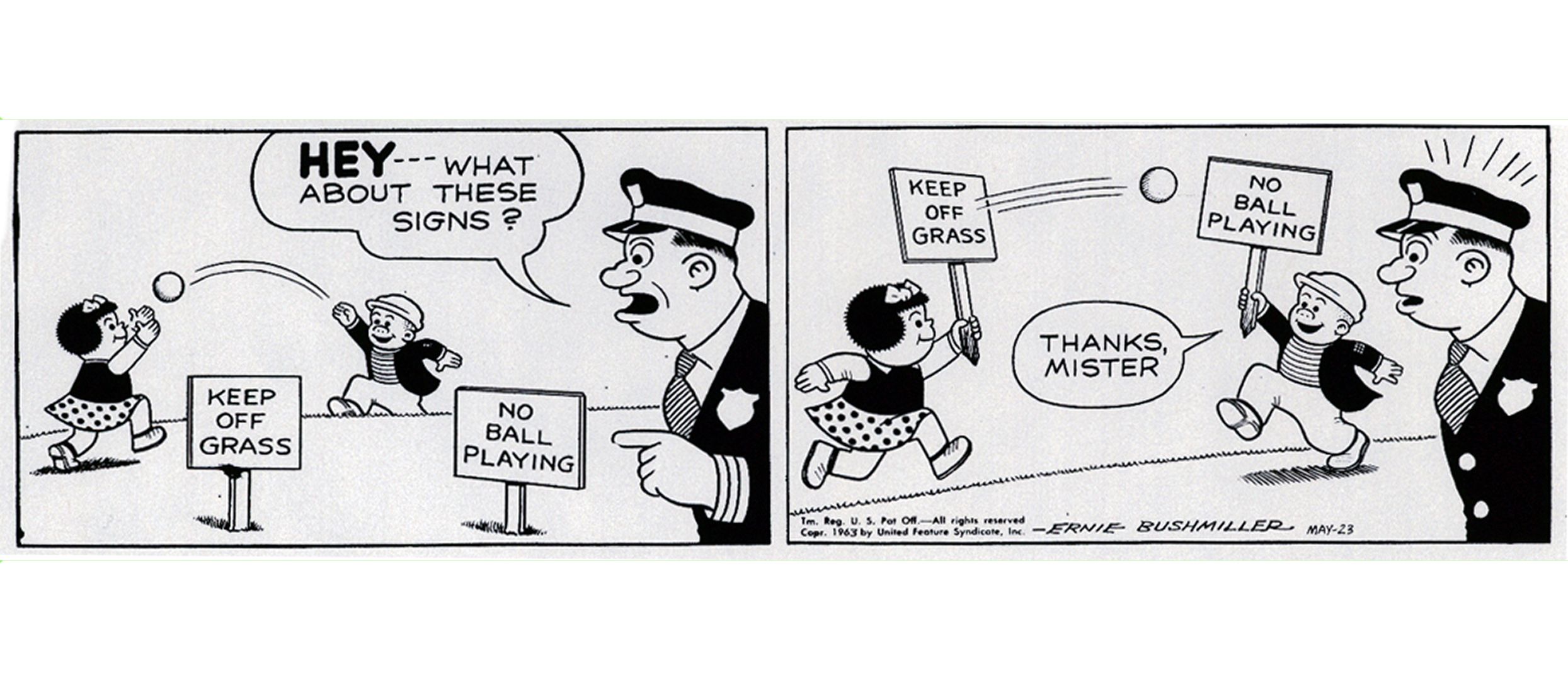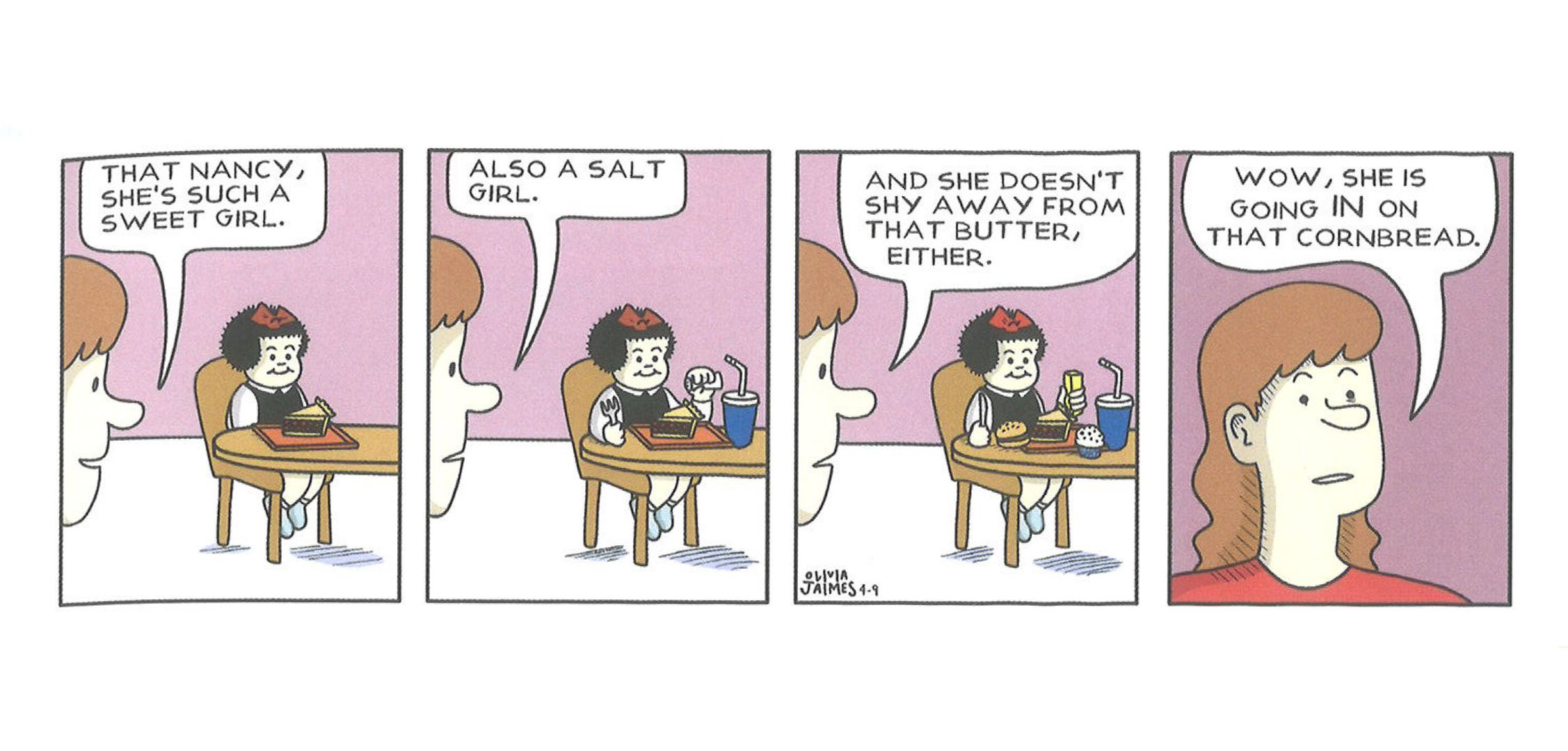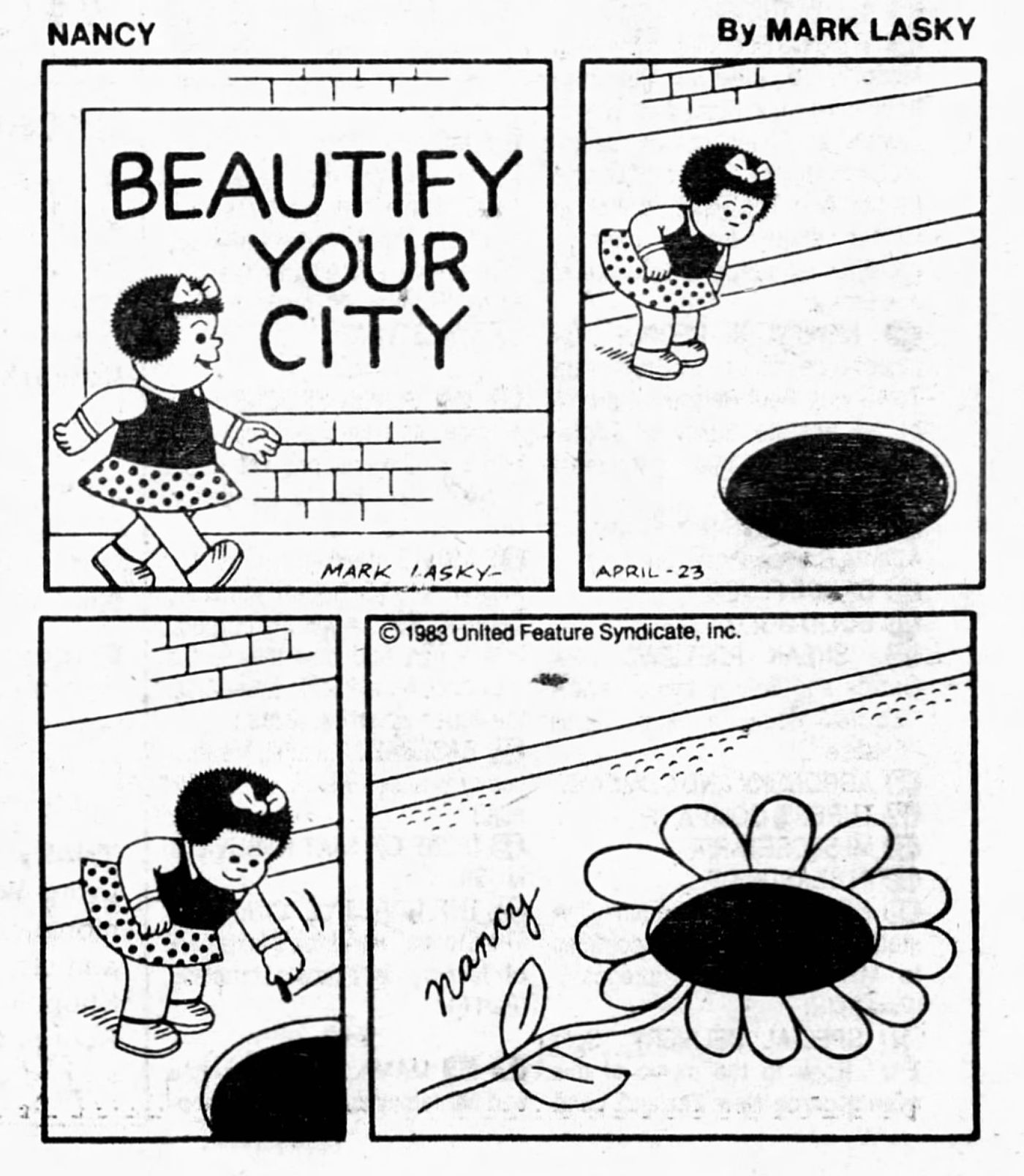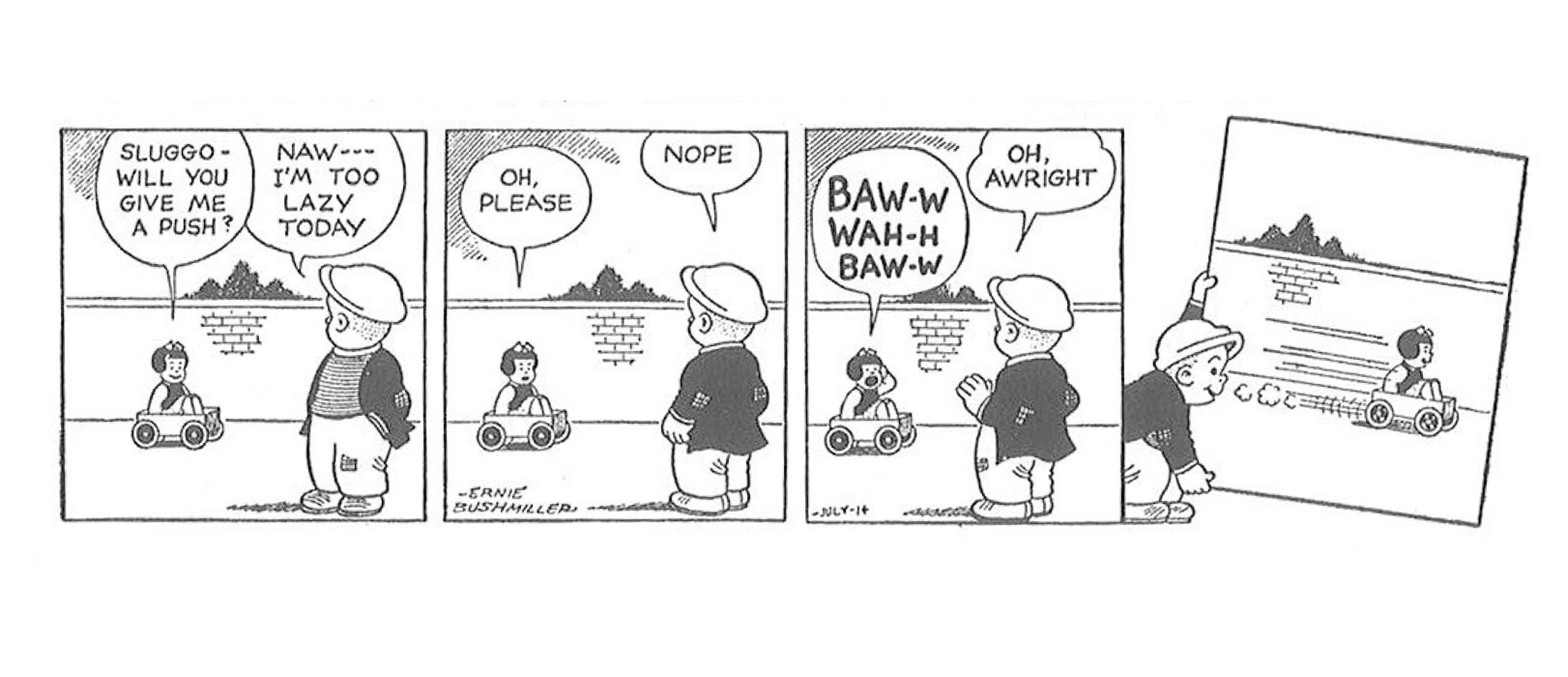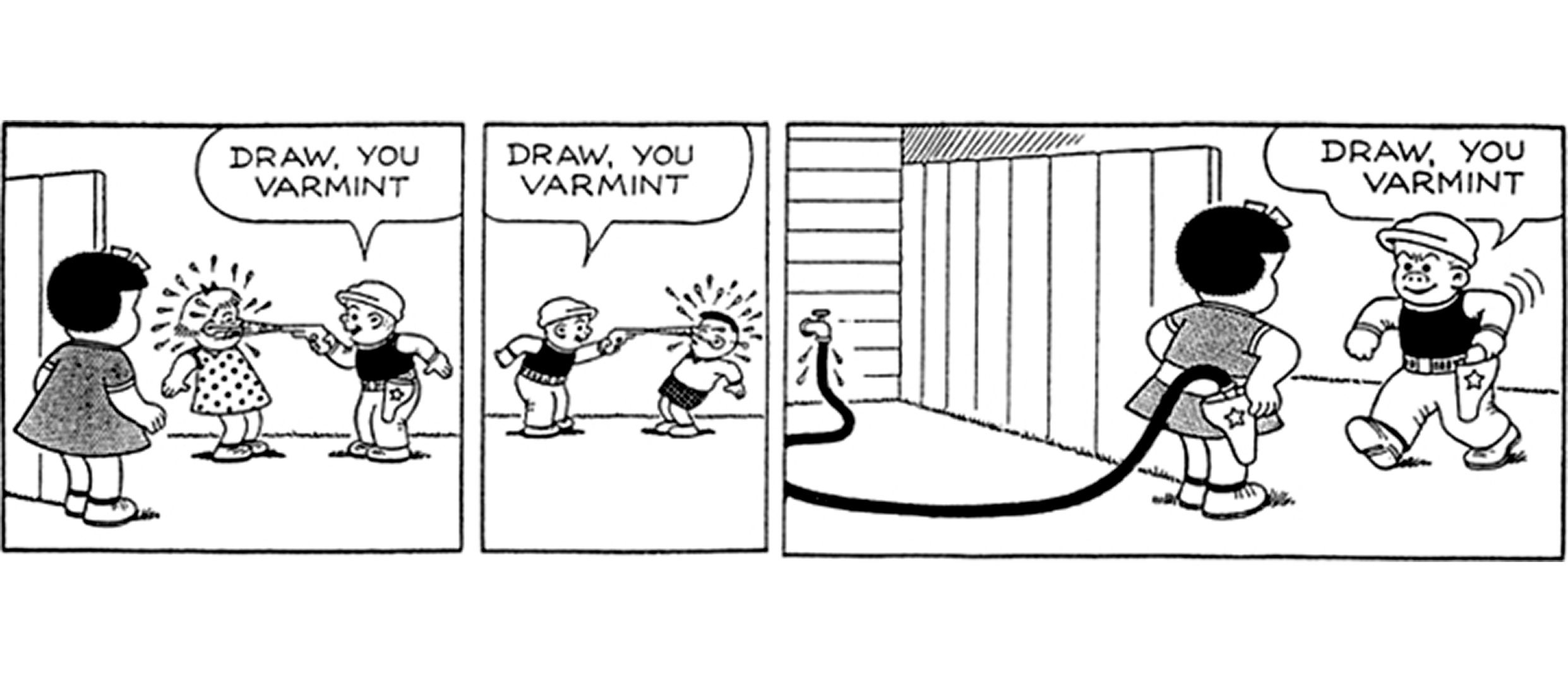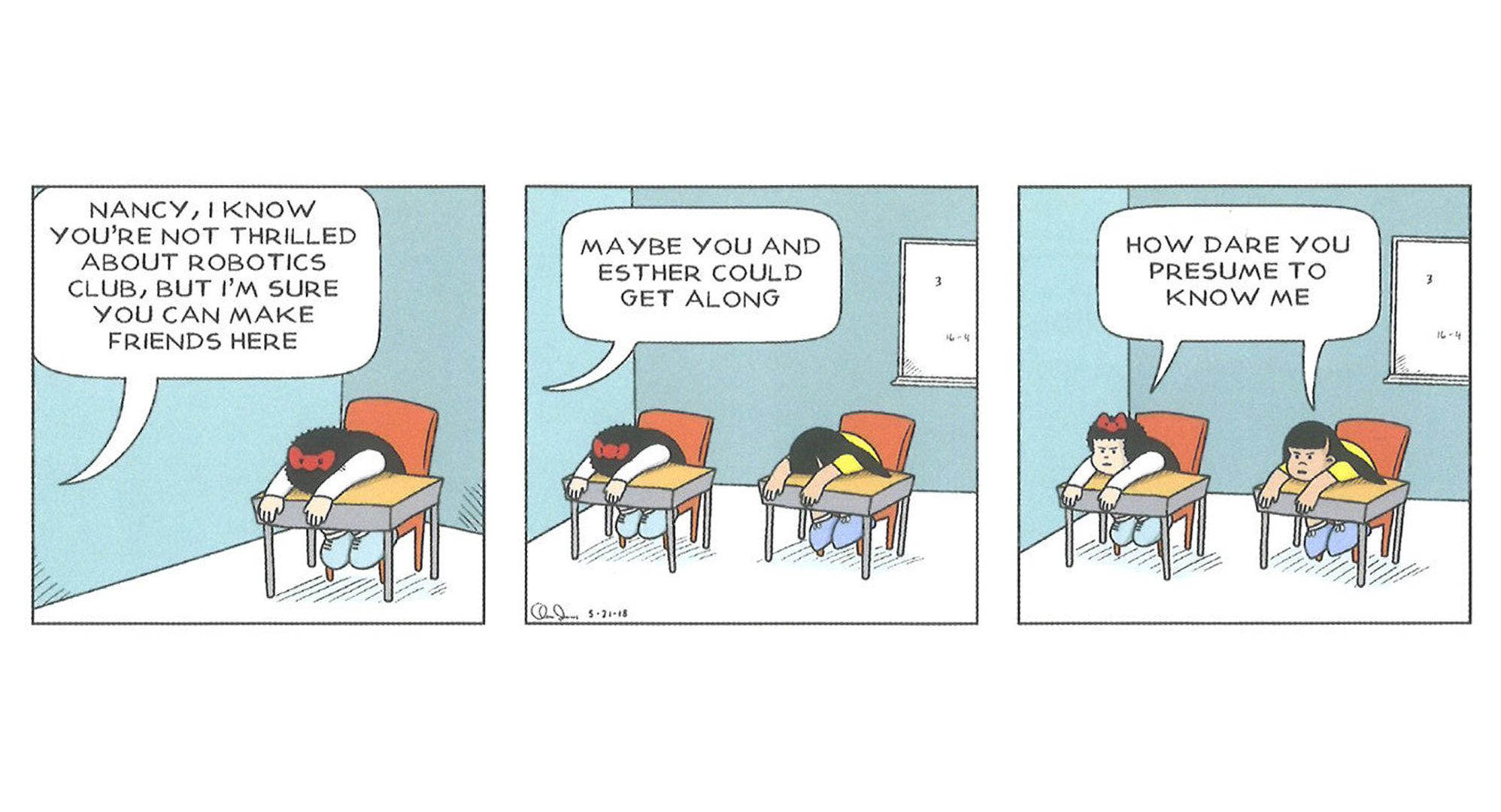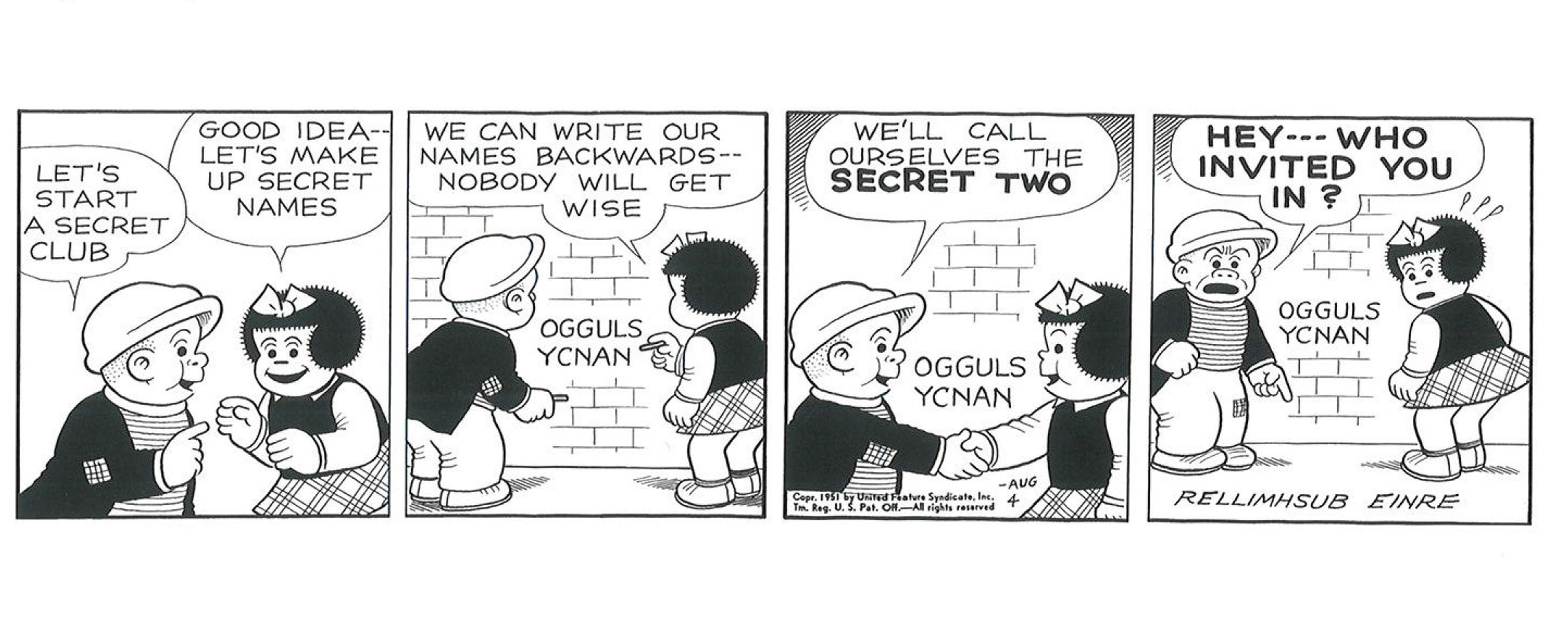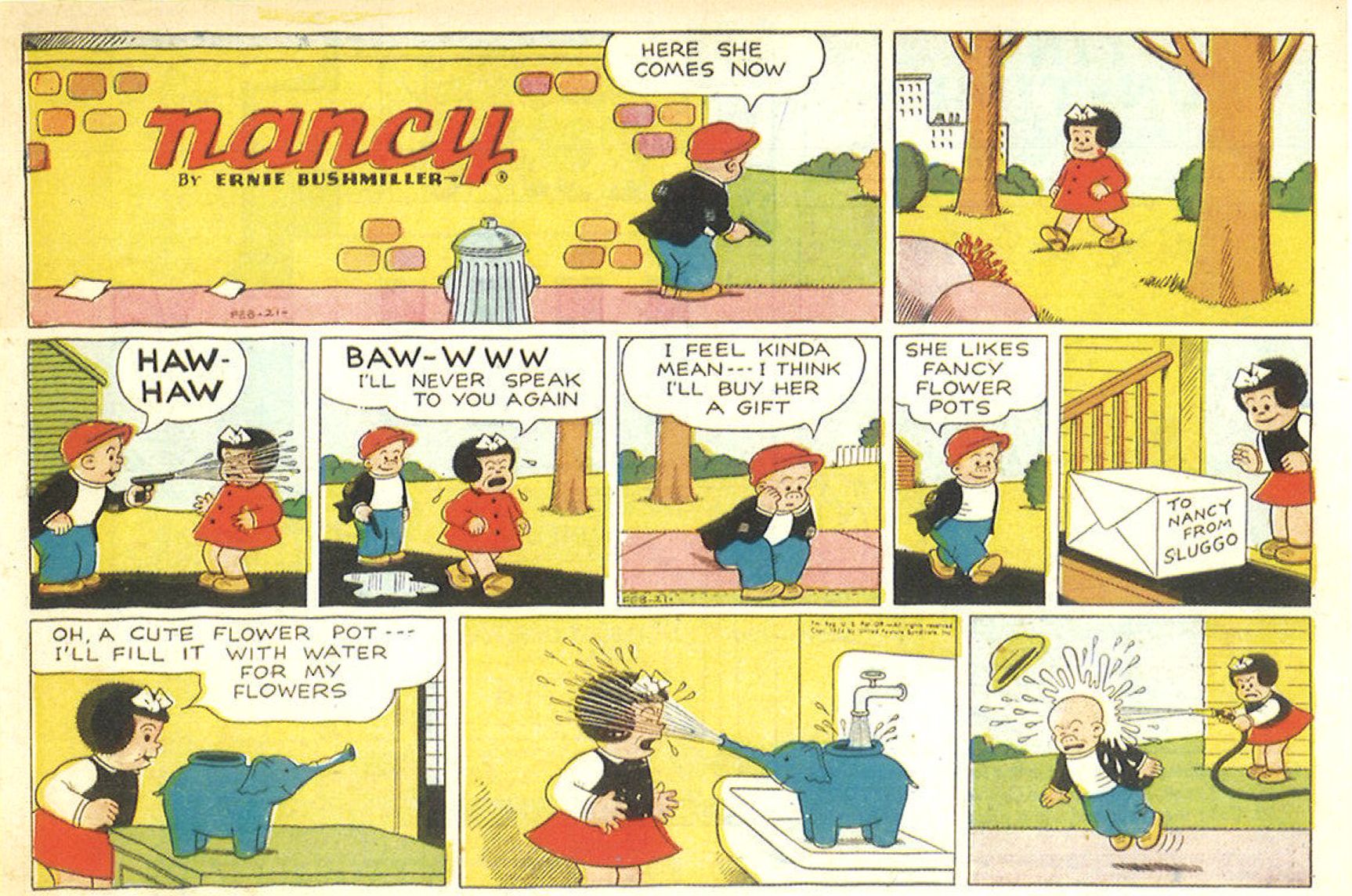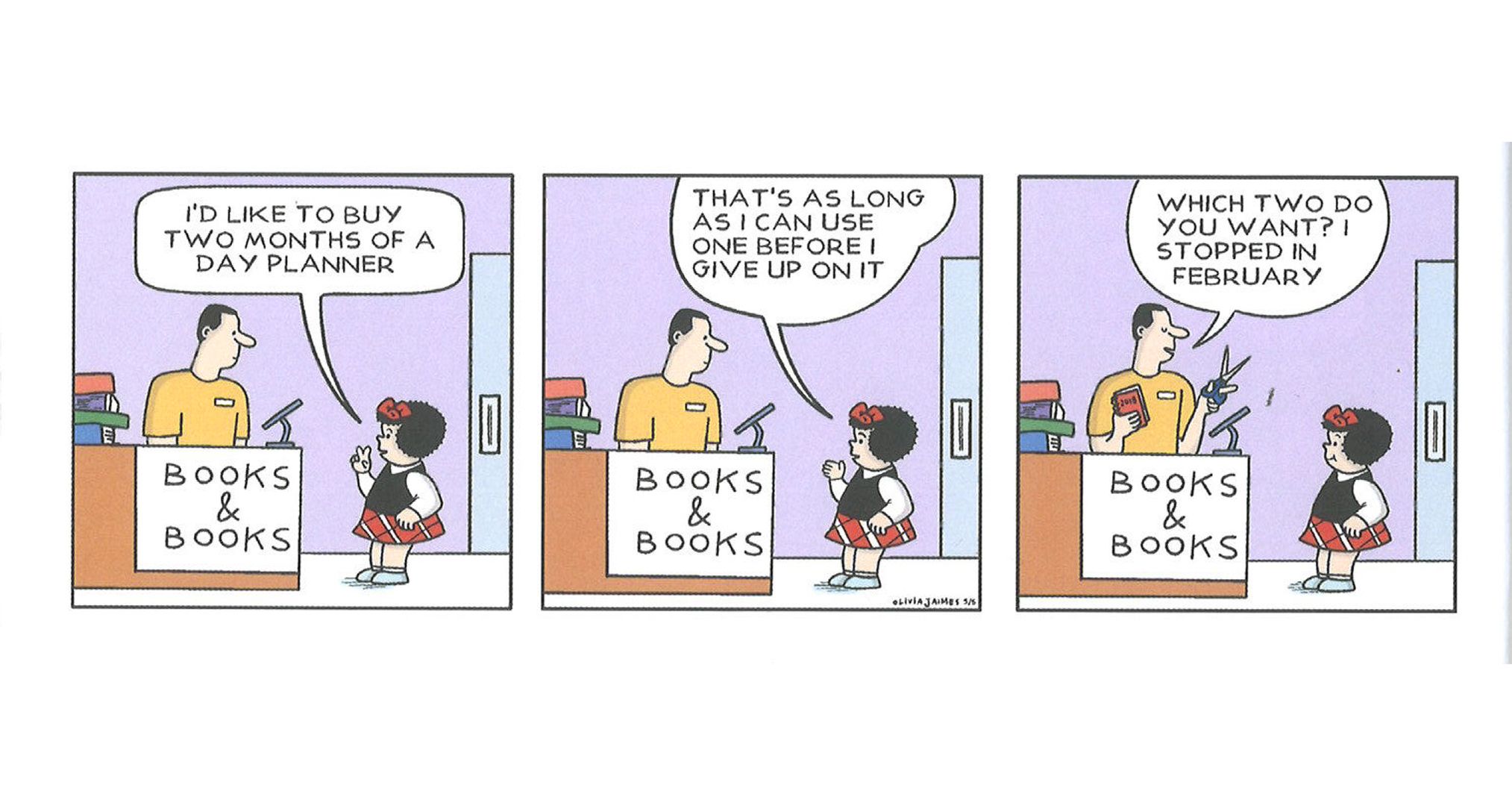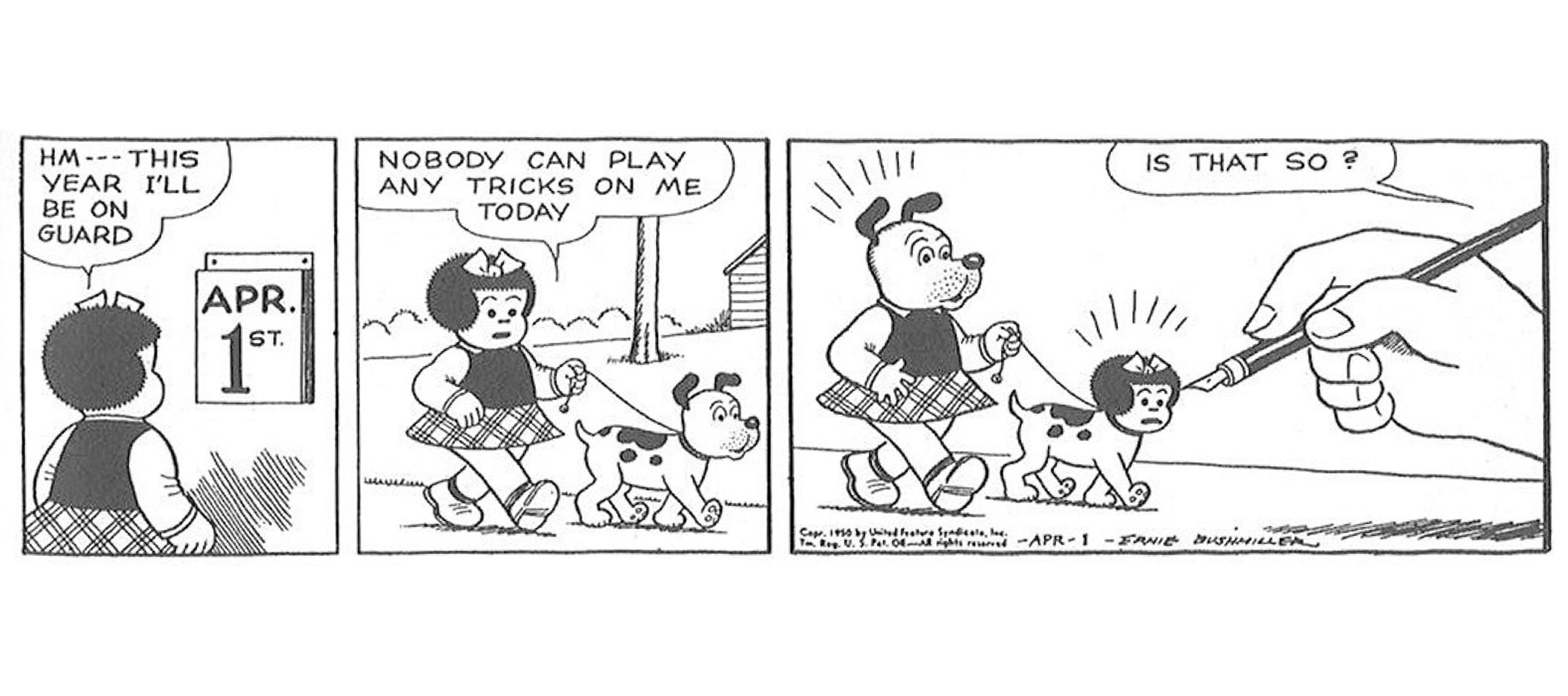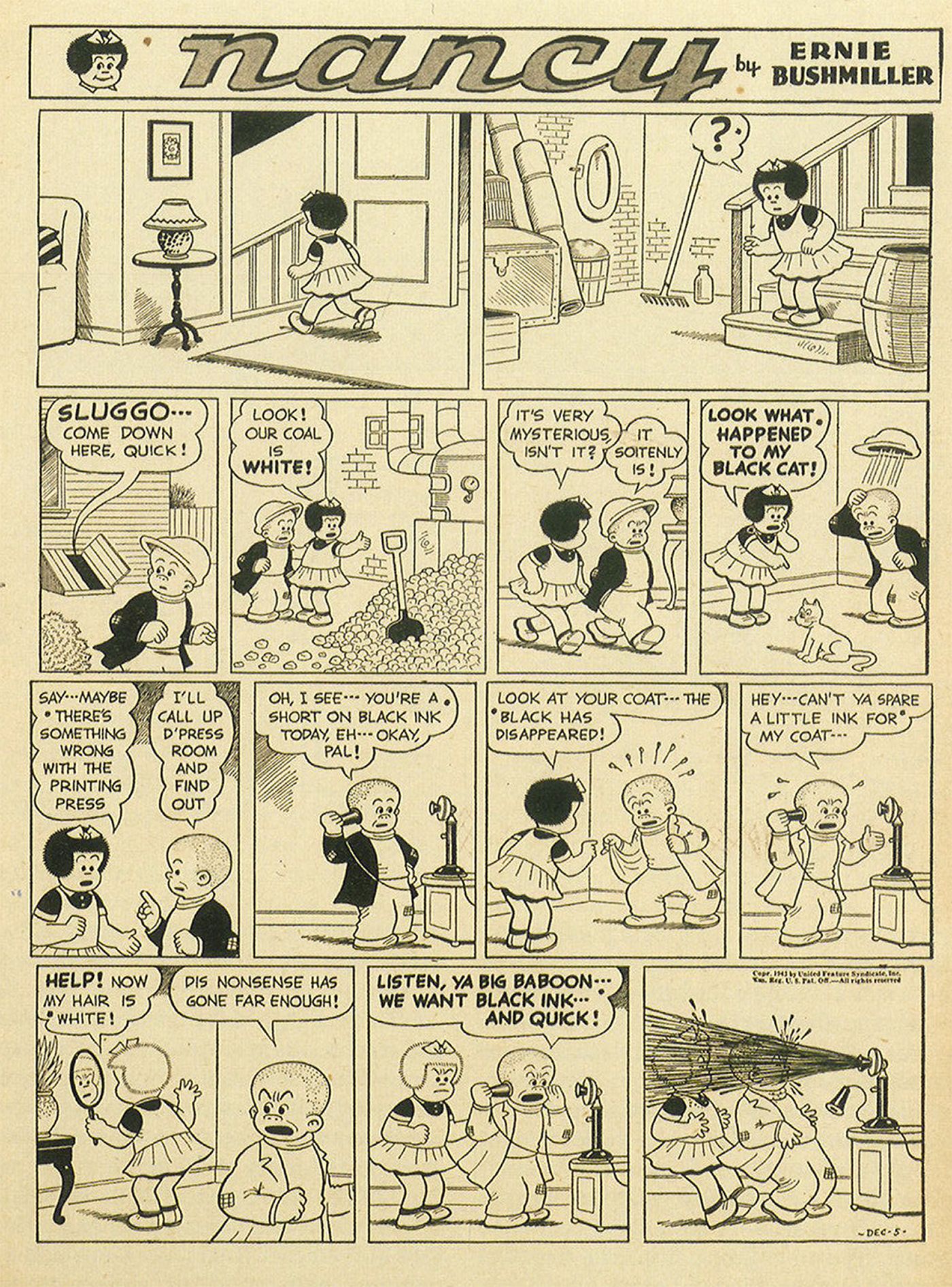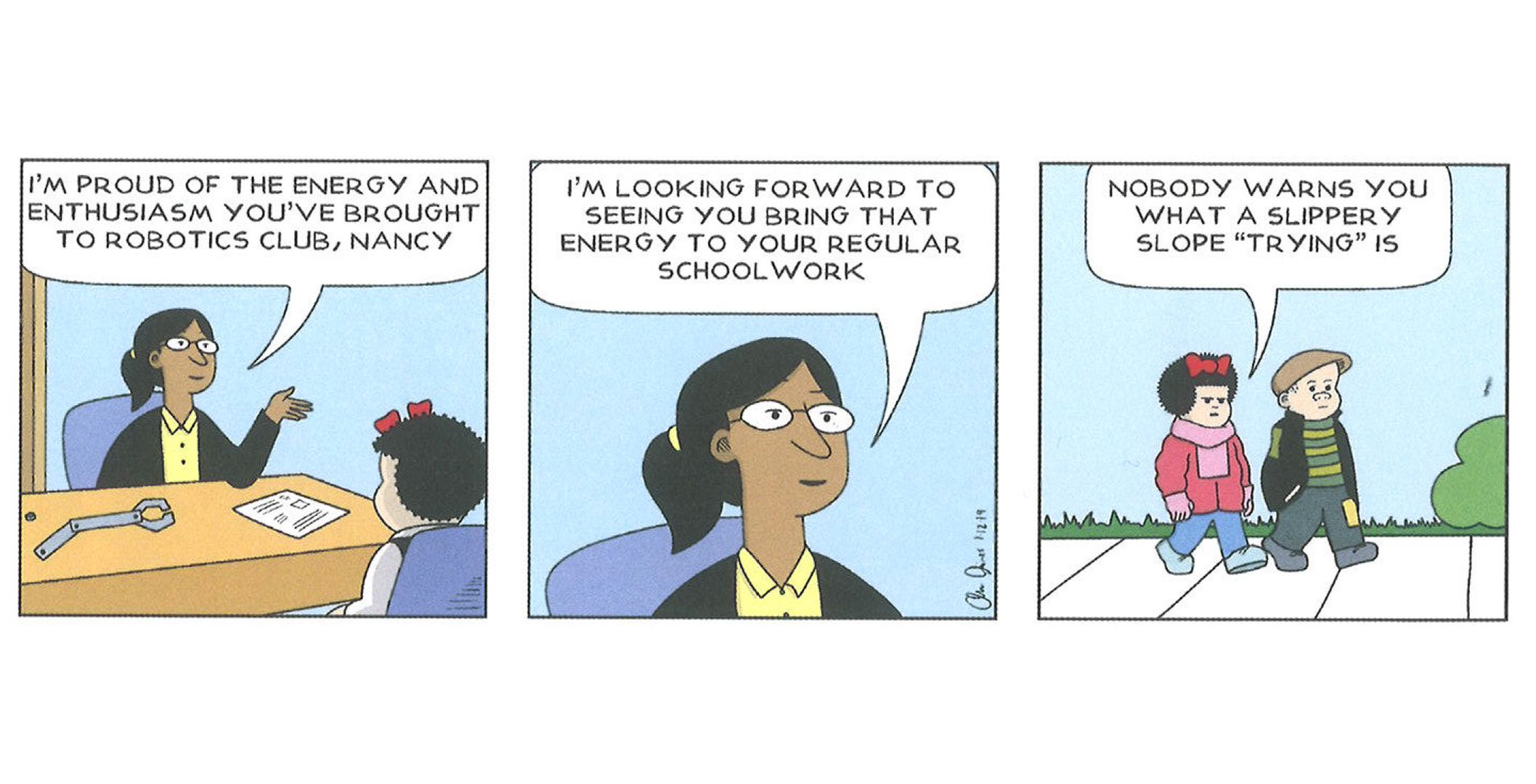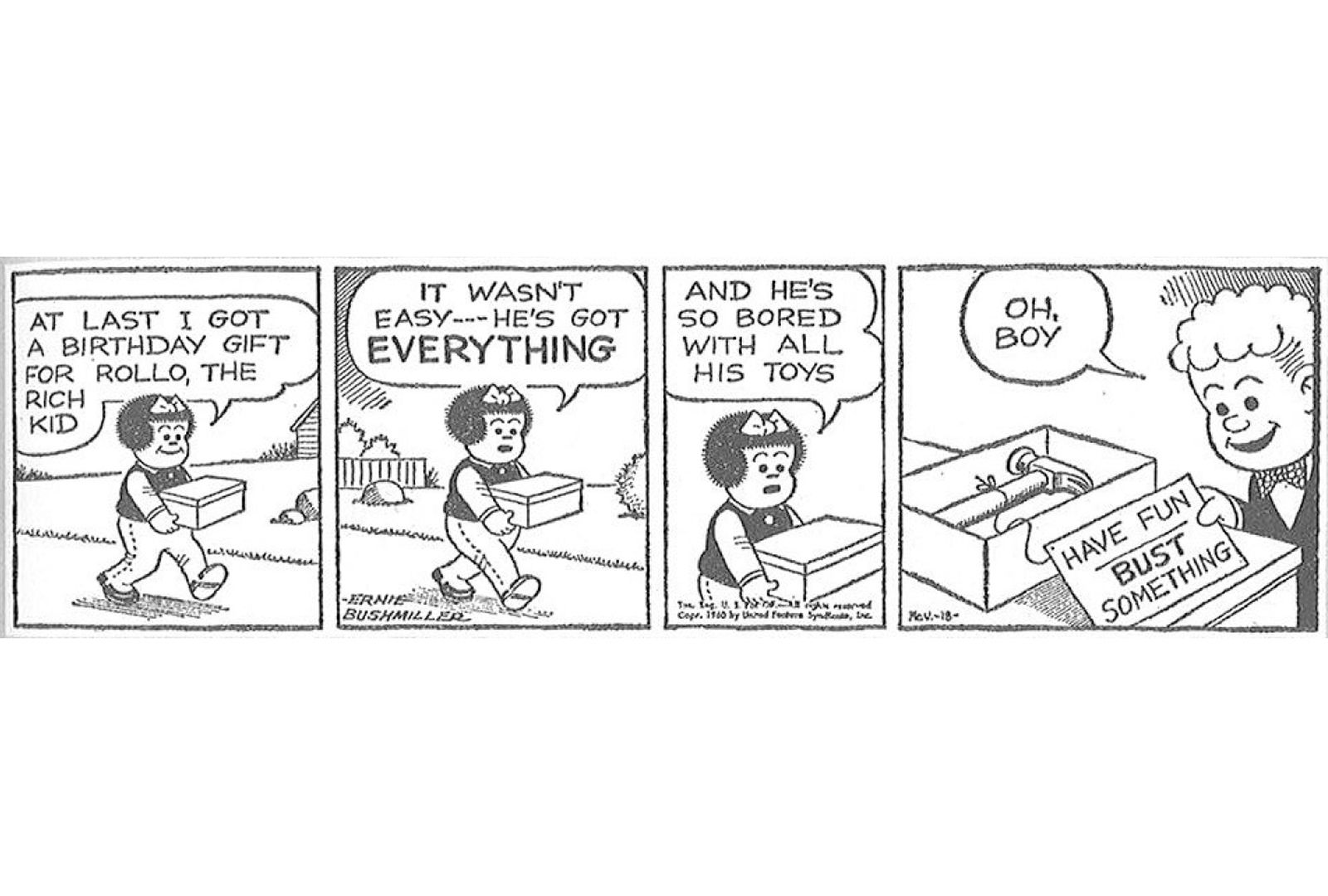Summary
- Nancy is a classic comic strip created by Ernie Bushmiller that first appeared in 1938. The strip follows the misadventures of the titular character, Nancy, and her friends as they navigate life in their small town. Over the years, several artists have taken over the strip, including Mark Lasky, Al Plastino, Jerry Scott, and most recently, Olivia Jaimes.
- Some of the most memorable moments in Nancy include when Nancy takes graffiti to a whole new level by drawing a flower around an open manhole, Sluggo’s water gun antics, and Nancy’s first female best friend, Esther. The strip also features several instances where Bushmiller breaks the fourth wall, acknowledging that his characters are in a comic.
- One of the more recent developments in the strip is the introduction of smartphones, apps, and streaming into Nancy’s world by Olivia Jaimes. She has also shown how the modern world can be too busy to keep up with, and how even the most organized among us can struggle to stay on top of things.
The comic strip Nancy has changed through its almost ninety-year run, but it has always been funny. When cartoonist Ernie Bushmiller took over Fritzi Ritz, a comic about a pretty flapper trying to make it in Hollywood, he thought it would be a fun gag to have a rowdy niece come visit her. That niece was Nancy, and she stole both America’s hearts, and the comic.
Bushmiller took the comic strip medium to new levels, breaking the fourth wall, playing with panels, and sometimes inserting himself into the comic. His work on Nancy was a groundbreaking inspiration, and his compositions are still studied academically. So there’s no better time to enjoy some of the funniest Nancy comic strips across its entire history.
Related
15 Best Peanuts Comic Strips Of All Time
Of all the legendary Peanuts daily comic strips in the world, a few stand above the rest as particularly cute, funny, or otherwise memorable.
15 The Local Bank is a Circus
By Ernie Bushmiller, June 23, 1972
This Nancy comic has become iconic online, with sometimes just the final panel being cut out and used on its own as a meme. The idea that a child would ask for a bank loan for a very small amount of money is funny, and then made funnier by the sight of a rich, fancy banker attending the circus and enjoying himself like a little kid. In some ways, it’s a smart move for the banker: it’s unlikely Nancy would ever pay back her small two-dollar loan, and he got to enjoy a trip to the circus while it’s in town.
According to Bill Griffith’s graphic novel biography of Ernie Bushmiller,
Three Rocks
, the comic artist often got the idea for a gag first, and then worked backwards to figure out how his characters could get there.
14 Nancy vs. Tetherball
By Jerry Scott, September 27, 1994
Though Nancy sometimes wants nothing more than to be lazy and eat snacks, she and Sluggo are actually very active, outdoorsy kids. This Sunday strip from the 1990s shows Nancy being defeated by a common sight in the playground – the tetherball. Though this comic isn’t written by Bushmiller, artist Jerry Scott takes inspiration from his playful style, putting the final panel sideways to fit both Nancy on the tall tetherball pole and Sluggo on the ground within the frame. For the reader, they get a fun gag, but also the fun of rotating the comic page to get the punchline.
Jerry Scott may be more well-known for his other comics than his time on
Nancy: Baby Blues
(with Rick Kirkman) and
Zits
(with Jim Borgman). While he started off by keeping Bushmiller’s character designs, he slowly tried to make the kids look a little more modern.
13 Nancy and Sluggo See the Signs
By Ernie Bushmiller, May 23, 1963
Nancy and Sluggo are unapologetic in their search for fun and joy in life, even twisting words from other adults so that they always get what they want. Here, as the two play ball on a grassy area with signs explicitly asking that they neither play ball nor stand on the grass, a cop tries to stop them. However, when he calls out the signs, the kids don’t stop what they’re doing, they simply uproot the signs to use them as paddles for their game. After all, the officer didn’t say, “Stop,” he told them about the signs, which make great rackets.
12 Nancy Loves The Whole Food Pyramid
By Olivia Jaimes, April 9, 2018
Under the previous artist, Guy Gilchrist, Nancy lost some of her bite, becoming a nice girl who listened to classic rock and donated to charity. When Olivia Jaimes took over in 2018, this first strip established the new tone which she would apply to the modern comic. An adult comments that Nancy is a “sweet girl,” but she’s talking about all the treats Nancy keeps ordering for herself. Cutting away to just the adult at the end, the visuals for the punchline, “She is going IN on that cornbread,” are left to the reader’s imagination. Naughty Nancy is back, a kid who hungers for excitement.
After Ernie Bushmiller’s death in 1982, a series of artists took over
Nancy.
Mark Lasky took over daily strips until his own untimely death in 1983. Al Plastino covered the Sunday strips until 1985, when Jerry Scott, who was already drawing the dailies, took the reins. Guy Gilchrist started his 23-year run in 1995, ending in 2018 when Olivia Jaimes got the job.
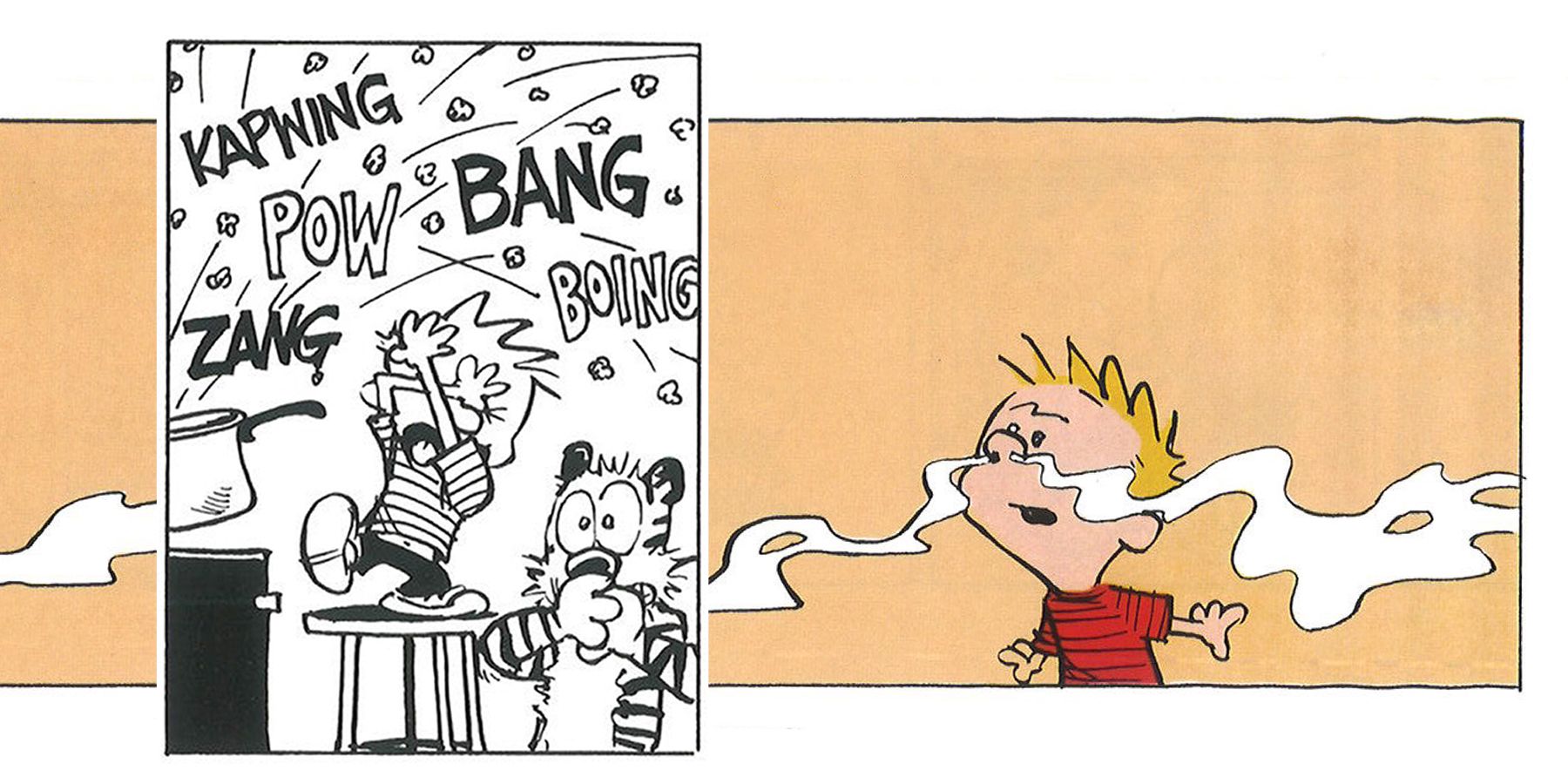
Related
10 Funniest Calvin and Hobbes Comics About Food
Monkey brains, popcorn attacks, and, of course, Chocolate Frosted Sugar Bombs – all appear in the Top 10 funniest Calvin and Hobbes strips about food.
11 Nancy Thinks Graffiti Is Beautiful
By Mark Lasky, April 23, 1983
Nancy walks past a sign encouraging her to “beautify [her] city,” and takes the message to heart. Coming across an open manhole, she sees her chance – and draws a flower around the sewer. City, beautified. This is again an instance of Nancy seeing something and taking it as permission for what she already wants to do: it’s supposed to inspire her to clean up litter or plant a tree, and she instead draws on public property. She’s a delinquent in the nicest, least aggressive way. She has beautified her city by drawing a flower, even though that’s not what was asked.
10 Sluggo Knows He’s in a Comic
By Ernie Bushmiller, July 14, 1947
Ernie Bushmiller didn’t just write a comic about his child characters being a group of little rascals – he also liked playing around with the format of the comic strip. Here, Nancy needs a push in her toy car, but Sluggo says he’s feeling too lazy. When she starts crying, he gives in – and picks up the corner of the final panel, turning the ground downhill, so Nancy can ride. This winking acknowledgment that his characters know they’re in a comic would pop up many times in Bushmiller’s run on the strip, like a Labor Day strip where Nancy “refuses” to work.
9 Nancy Gets a Bigger Water Pistol
By Ernie Bushmiller, August 8, 1959
Sluggo gets a taste of his own medicine after terrorizing the neighborhood kids, and saving Nancy for last. Using only one line of dialogue repeatedly, and leaving the actual revenge up to readers’ imagination, Bushmiller sets up a great, simple gag. Nancy sees Sluggo playing the bully, and prepares off-panel as the reader sees more of Sluggo’s reign of terror. When she returns, we see what Sluggo is about to find out – Nancy has turned on the spray hose, put it in her toy holster, and is ready to have a showdown with the real varmint in the neighborhood.
For readers interested in a very deep dive into Bushmiller’s
Nancy
strips, the Fantagraphics book,
How to Read Nancy
, breaks this specific strip down into individual elements over 87 pages to explain its construction.
8 After 90 Years, Nancy Gets a Female Best Friend
By Olivia Jaimes, May 21, 2018
Nancy and Sluggo aren’t the only neighborhood kids that appear in Nancy, but they’re by far the most popular. There’s Rollo the rich kid, Nosey Rosie, and many more, all defined by a gimmick. Here, though, Nancy makes a friend who is exactly on her level – Esther. Also pushed to join the Robotics Club by her family, Esther is a perfect partner-in-crime for Nancy, equally grouchy and lazy at school. The two of them compete over who cares less about the club, before teaming up and admiring each other’s ingenuity at escaping having to do any work.
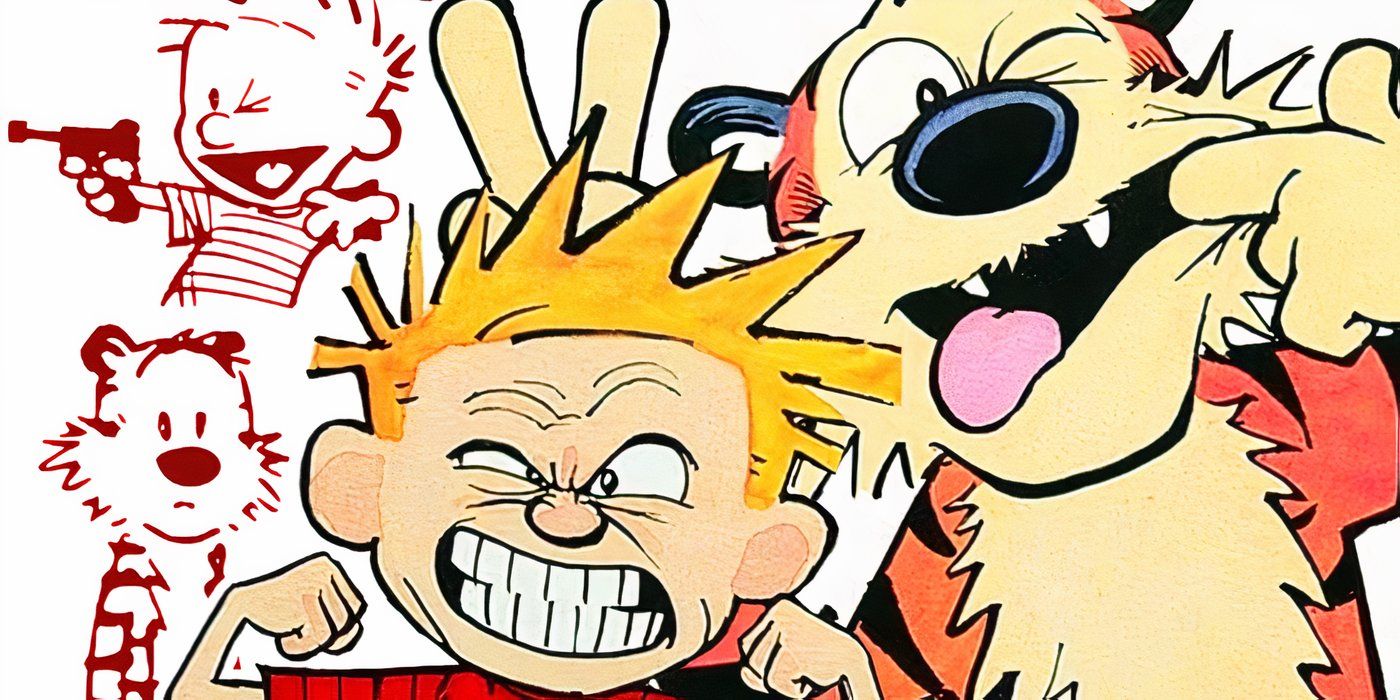
Related
This Calvin & Hobbes Comic Would NEVER Be Published Today
Calvin and Hobbes is usually a family friendly comic, but Bill Watterson couldn’t have known how this 1994 comic would be read today.
7 Ernie Joins the Club
By Ernie Bushmiller, August 4, 1951
Kids often try to invent excitement by developing secret codes that only they and their friends can understand. Nancy and Sluggo get in on the fun by declaring themselves “The Secret Two,” and deciding that they’ll write their names backwards wherever they cause chaos. Like many kids doing this, however, they don’t realize that there’s an adult “listening in” – their comic creator, Ernie Bushmiller, who signs the comic with his name written backwards. In a meta twist, readers find out that Nancy and Sluggo can see his signature, asking who he is to butt in on their secret.
6 A Make-Up Gift Starts a New Fight
By Ernie Bushmiller, February 21, 1954
Sluggo is back on his water gun antics, spraying Nancy in the face when she isn’t fully prepared as she was above. This time, he does seem to feel guilty about it afterward. Trying to make it up to her, he buys her a fancy flower pot shaped like a cute elephant. Unfortunately, he didn’t foresee how this would hurt him – when Nancy fills up the water pot, the cute snout just splashes the water directly back in her face. She takes it as an insult and gets Sluggo back, though he is clueless as to what he’s done wrong.
5 Same, Nancy. Same.
By Olivia Jaimes, May 5, 2018
Many adults have trouble trying to get organized and buy a yearly planner, thinking they’ll finally do it right. Nancy has them beat here, already knowing her limits, and asks to buy just two months out of one. Luckily, the man at the store is in the same boat as her, and offers her pages out of his own. Olivia Jaimes has done a lot to modernize Nancy, introducing smartphones, apps, and streaming into the character’s world. However, one of the more subtle ways she succeeds is by showing how the modern world is just too busy to keep up with.
4 The Artist Makes His Characters Into April Fools
By Ernie Bushmiller, April 1, 1956
Nancy and her friends play pranks on each other and tease each other every day, so she especially needs to be on guard on April Fool’s Day. However, her surprise really comes from an unexpected source when she announces that there’s no way anyone will trick her this year. Ernie Bushmiller breaks the fourth wall to swap the heads of Nancy and her dog, Poochie, in a prank that only a cartoonist can play. As already seen in this list, Bushmiller liked his characters to acknowledge that they’re in a comic, an inspirational gag for the next generation of cartoonists.
Duck Amuck
, the classic
Looney Tunes
animation where Daffy Duck spends the entire cartoon tortured by an unseen animator (ultimately revealed to be Bugs Bunny), released in 1953, three years before this strip. Bushmiller already loved breaking the fourth wall in
Nancy
, but may have still been inspired by the short.
3 Nancy Runs Out of Ink
By Ernie Bushmiller, December 5, 1943
Another fourth-wall breaking classic from Bushmiller sets up a mystery for the kids, before they realize the problem isn’t in their world – it’s the printers of their comic. The coal in Nancy’s basement is white, and soon so is her black cat, Sluggo’s coat, and even her own hair. Trying to get some support over the phone leads to Sluggo getting a bit rude to whoever he’s talking to, and getting a taste of his own water pistol trigger-happy medicine. The phone spits out a torrent of black ink at both of them. Even in the 1930s, it paid to be polite.
When first introduced, Sluggo had a thick, New York-style accent, still seen in the above comic. In his first appearance, he asked Nancy if she wanted ”
to be [his] goil.
” Over the years, his accent faded to better match how the other kids spoke in the strip, though if the gag demanded it, it would return with a vengeance.
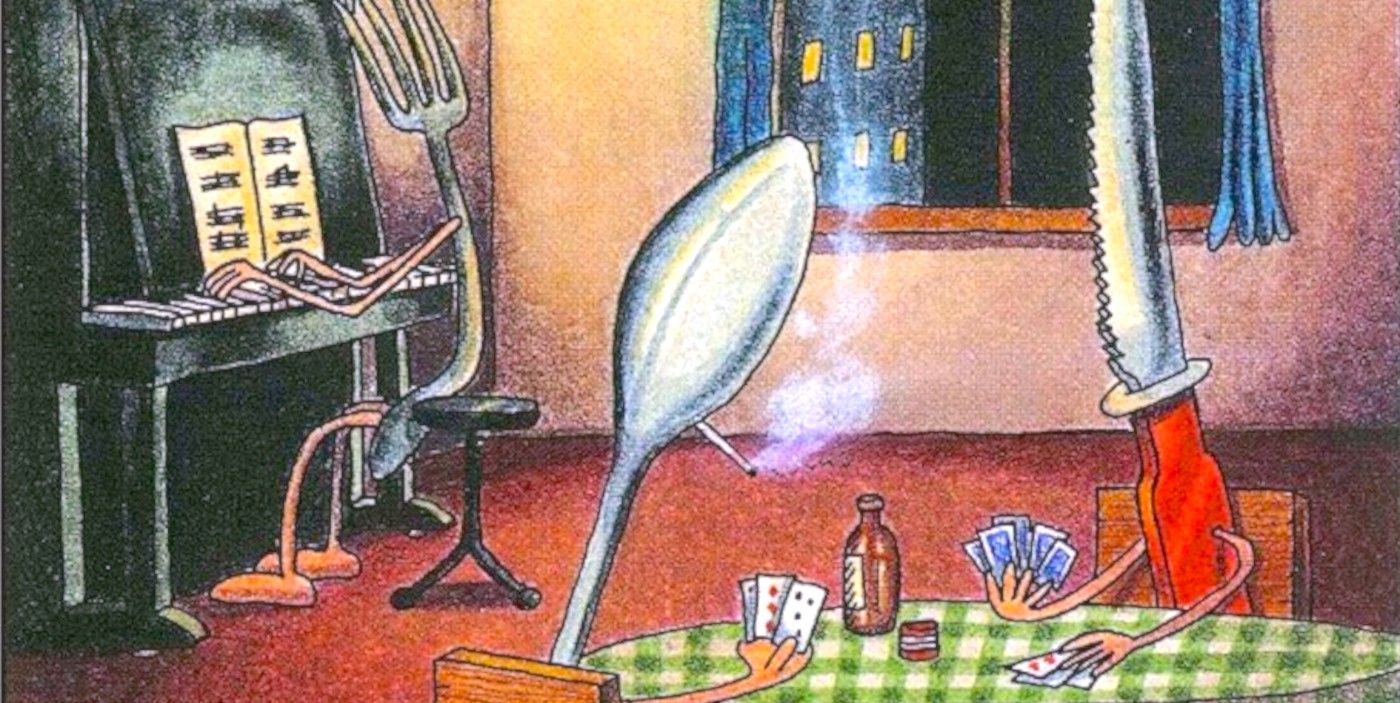
Related
The Far Side: 10 Incredible Strips Where Inanimate Objects Come to Life
Gary Larson’s seminal comic The Far Side made outrageous situations seem possible, as seen in these strips where inanimate objects come to life.
2 Nancy Learns the Downside of Being Gifted
By Olivia Jaimes, January 12, 2019
Alongside her new friend Esther, Nancy thrives in Robotics Club at school. Even though they both like to avoid work and don’t want to care about things, they think building robots is cool, and are competitive enough to want to beat the other kids. Nancy loves the praise she gets for doing well in this extracurricular, but learns there’s a downside: now that she’s shown she can work hard and put her mind to things, her teacher tells her that she expects to see Nancy improve in other areas of schoolwork. “Trying” truly is a slippery slope to “being good.”
1 The Perfect Gift for the Boy Who Has Everything
By Ernie Bushmiller, November 18, 1960
Rollo Haveall is the rich kid among Nancy’s neighborhood friends. While everyone except poor Sluggo seemed comfortably middle class, Rollo often had the best toys, the fanciest car, and the most lush summer vacations. Nancy, bringing him a birthday present, monologues about how he has so many things, he actually gets bored very easily, so it was difficult to think of something that he didn’t already have and would hold his attention. She must have looked within at her own delinquent desires to figure out the perfect gift for the boy who has everything – a simple hammer, with the note, “Bust something.”


